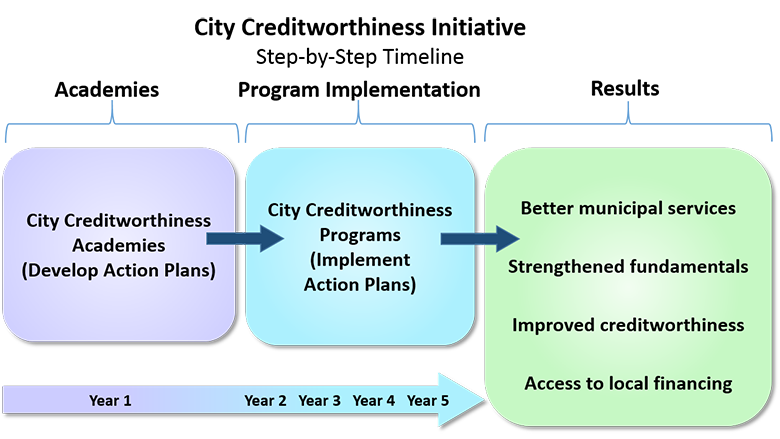Click to view: Context | Strategy | Results | Partners
Cities across the world are growing and polluting to unprecedented levels. The World Bank estimates that cities will attract an additional 2 billion people by 2050, and will produce well over 70% of global greenhouse gas emissions. Already under pressure, infrastructure and basic services such as transport, solid waste management, education or sanitation will need to be expanded significantly in order to serve these growing populations.
The investment required is immense: developing countries need an extra $1.3 trillion of investment in public infrastructure a year just to keep pace. Traditional sources of financing from central governments and international aid organizations won’t be nearly sufficient to meet the demand. Cities will need to innovate and access private sources of long-term financing through local capital markets and commercial partnerships.
However, in order to attract investment from private sources cities need to first be creditworthy. They need to manage finances, plan development and engage citizens using methods that emphasize sustainability and transparency. Recent estimates show that less than 20% of the largest 500 cities in developing countries are deemed creditworthy in their local context, severely constricting their capacity to finance investments in public infrastructure.
Supporting cities on the path to creditworthiness is the crucial first step in unlocking the larger, longer-term, sustainable investments that will provide critical services to resident populations and foster green growth through climate-smart urban development.

